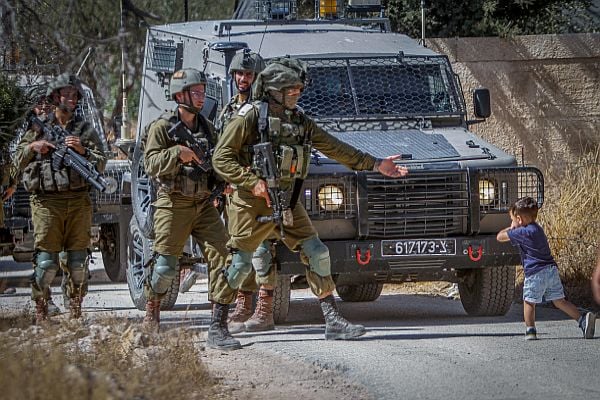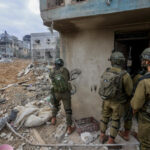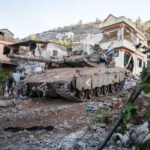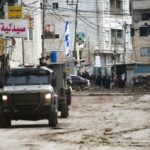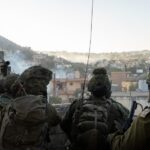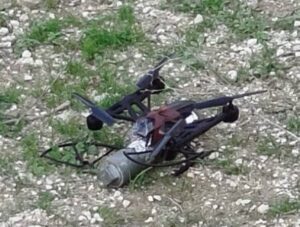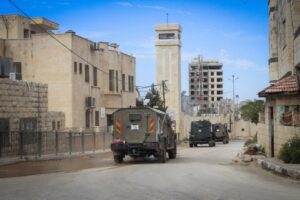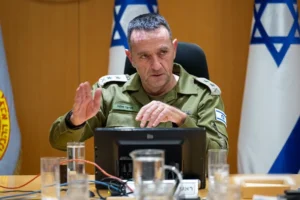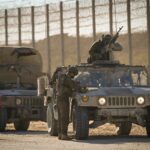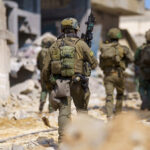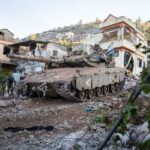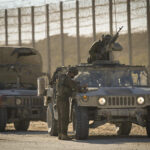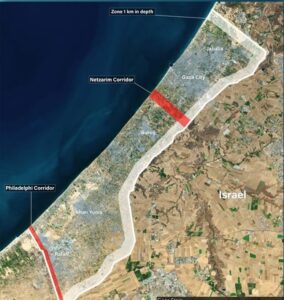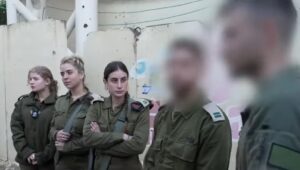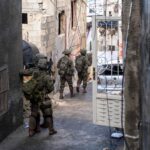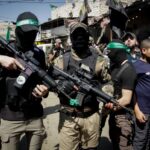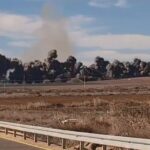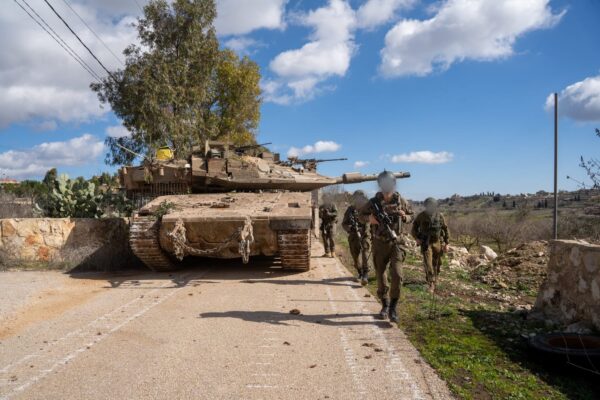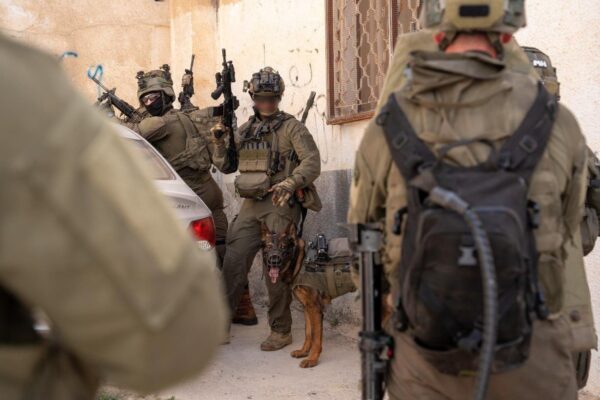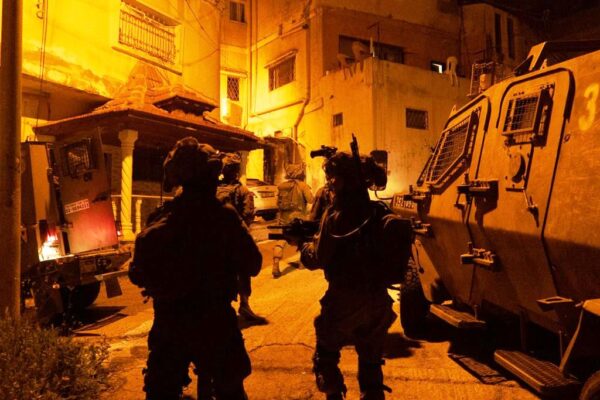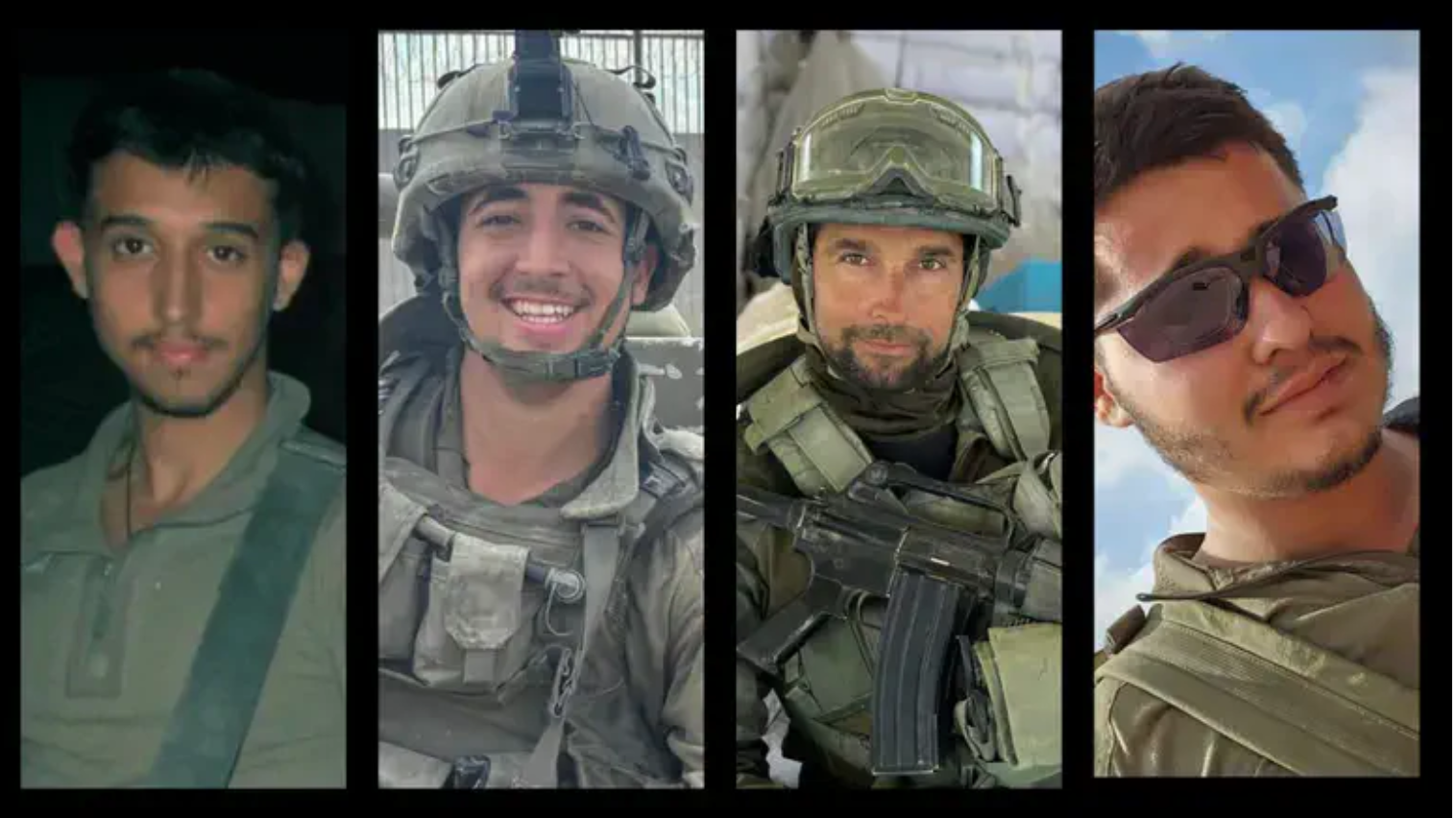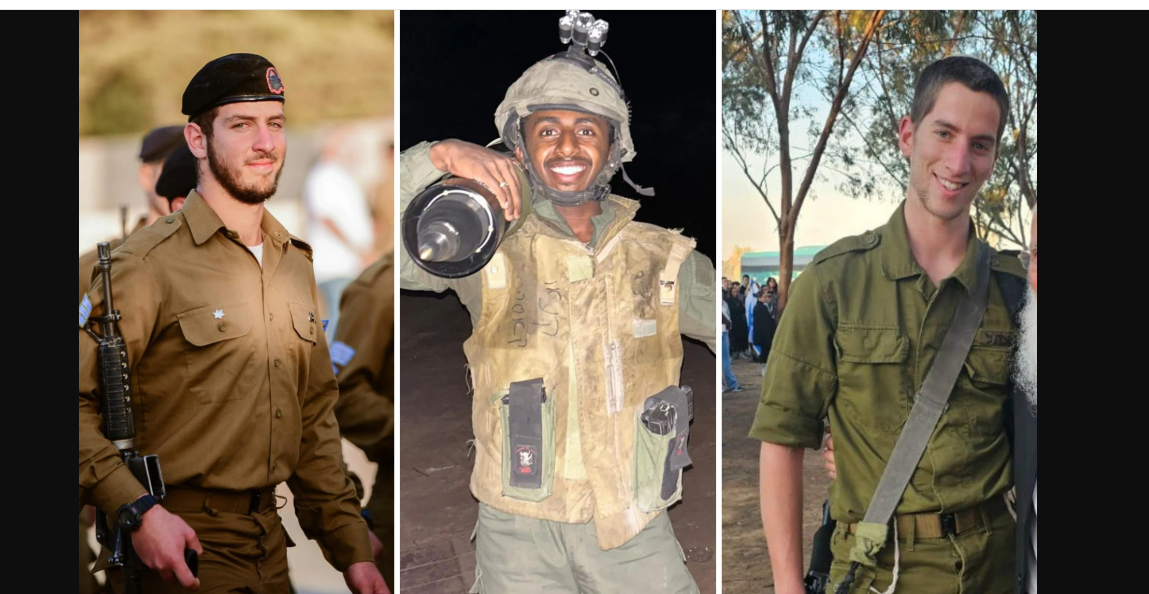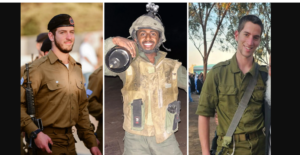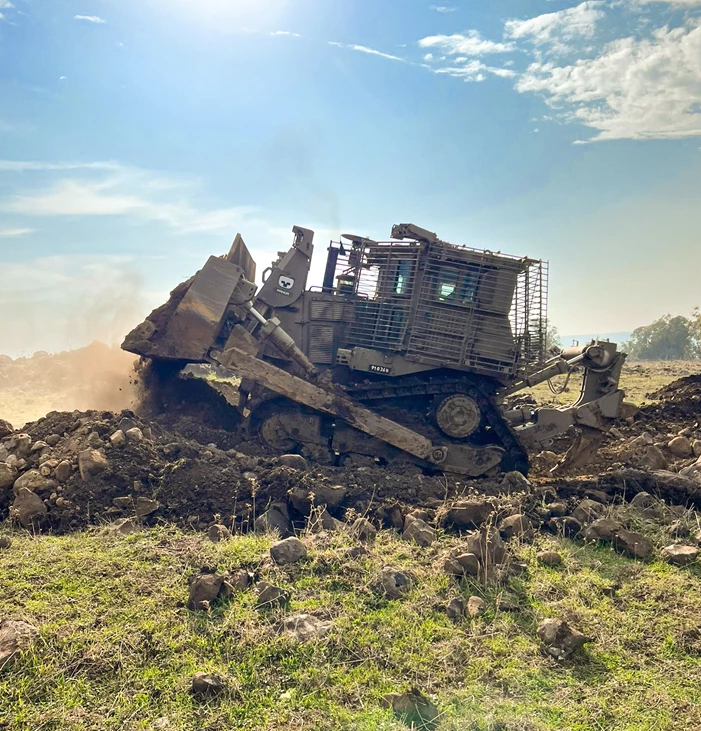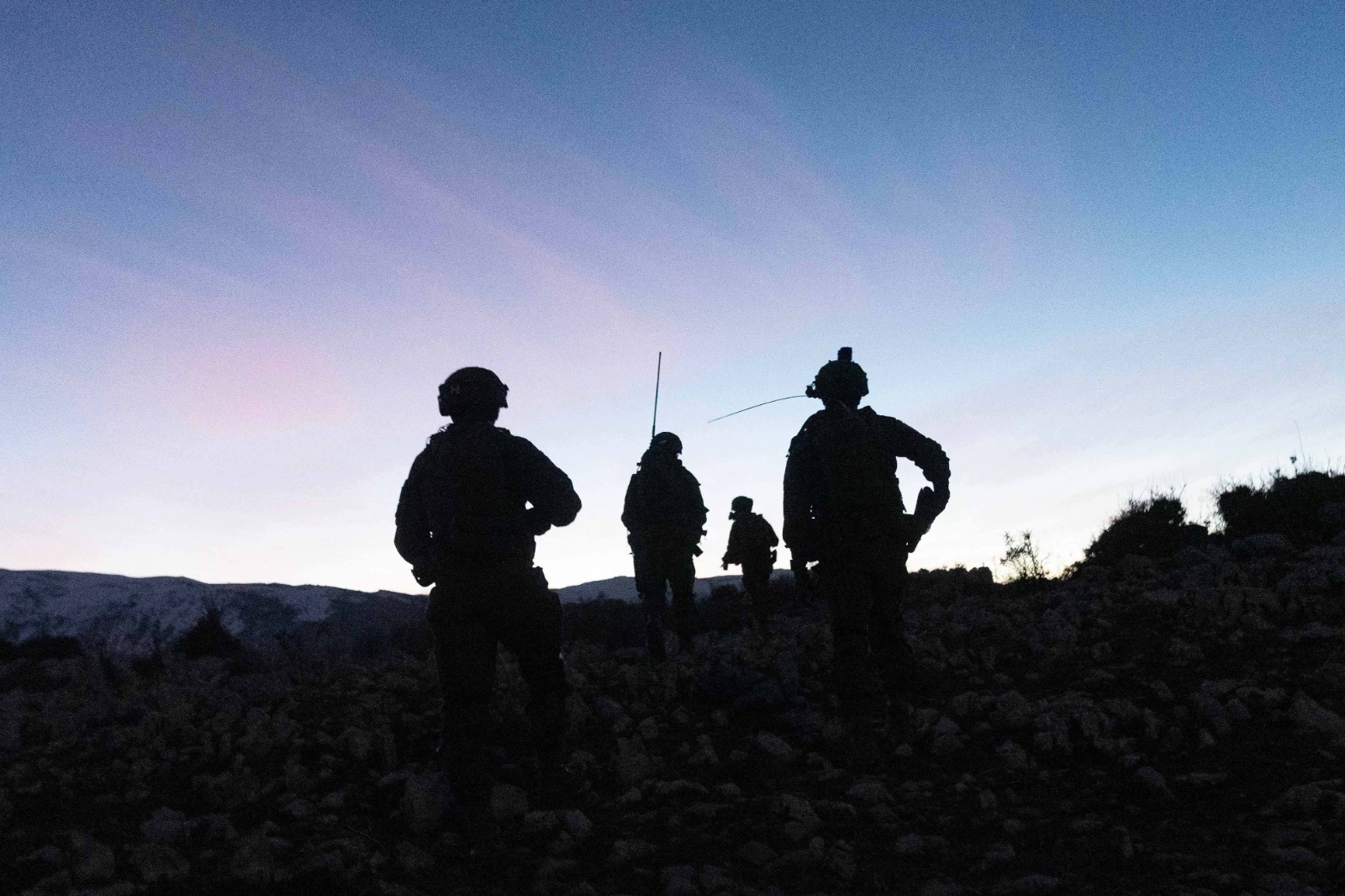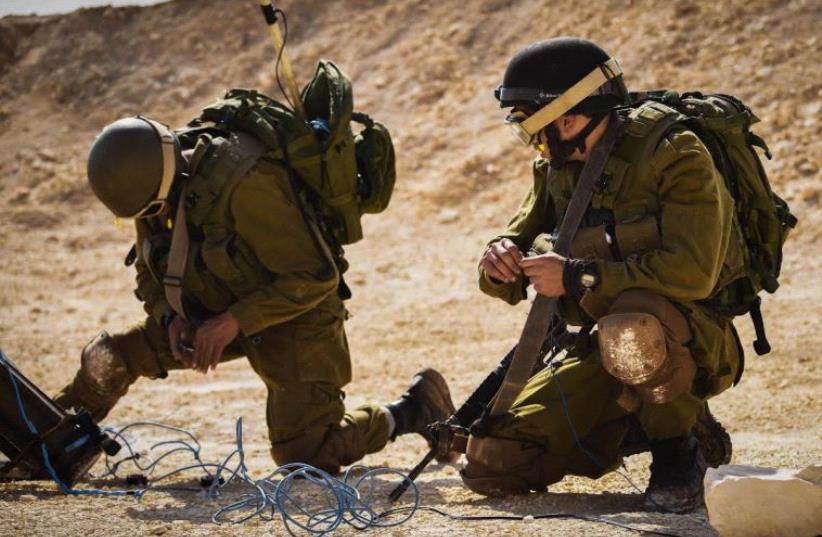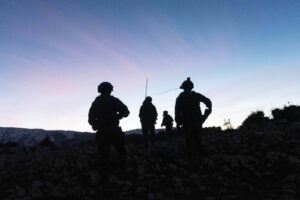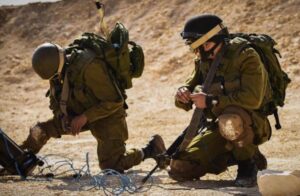Washington Post investigation into IDF counter-terror operation exposes more about the newspaper’s own biases than about the Israeli army’s actions.
By Chaim Lax, HonestReporting
In its recent investigation of an Israeli counter-terror operation in Nablus (Shechem) at the end of February 2023, the Washington Post claimed to show that Israeli forces purposefully and needlessly fired into a group of civilians while exiting the Palestinian Authority-controlled city.
However, a closer examination of the Post’s evidence and analysis exposes much more about the newspaper’s own biases than about the Israeli army’s actions.
Faulty Investigation
The Washington Post’s investigation revolves around an incident where Israeli soldiers returned fire at a man who the IDF said had fired at their vehicles as they were exiting Nablus.
As shown in a witness video provided by the publication, as Israeli military vehicles pass by, a man raises his arm and two loud gunshots can be heard.
However, the Washington Post disputes the IDF’s assertion, claiming that the man did not fire at the Israeli military vehicles and that those loud bangs heard in the video are not connected to him (the Post’s own experts are undecided on whether they were gunshots or not).
As analyses by HonestReporting and other organizations have shown, the evidence provided by the news outlet belies its conclusion that the man was not a gunman and seems to substantiate the IDF’s claims:
-As pointed out by the Elder of Ziyon blog, a witness video shows the gunman running toward the group of civilians with something heavy in his arms, presumably the gun he just used to fire at the IDF.
-While the gunman is running, a group of civilians can be seen fleeing the scene. As the IDF has yet to open fire, this is suggestive of them escaping the fire of the Palestinian gunman, not the Israeli soldiers.
-As pointed out by the organization NGO Monitor, the organization Defense for Children International – Palestine, which the Washington Post relied on for its analysis further on in this piece, substantiated the IDF’s claim by reporting that soon after the event, a Palestinian gunman had fled toward a group of civilians after firing at the IDF.
1/🧵 @washingtonpost published an ‘investigation’ that claims to show the IDF fired carelessly into a crowd of Palestinian civilians during a counter-terrorism op in Nablus. But our analysis reveals it is nothing more than a one-sided hit piece. https://t.co/qKbERjAOZ8
— HonestReporting (@HonestReporting) March 12, 2023
Another conclusion of the Washington Post’s investigation is that Israeli soldiers knew they were shooting at Palestinian civilians when they opened fire on the Palestinian gunman.
The Post arrives at this conclusion by utilizing witness videos and recreating the interior of the IDF’s Wolf armored personnel carrier (APC) as well as the street that the vehicle was traveling on using advanced 3-D imaging technology.
According to the Washington Post, Israeli soldiers fired 14 shots in four seconds, with the full knowledge that they were firing on civilians.
However, a closer analysis of the imaging casts throws this conclusion into doubt, as well as the methods by which the publication came to this verdict:
-Contrary to what the Washington Post suggests, the soldiers in the Wolf APC would most likely not have immediately been able to identify the civilians in the area. The civilians were mainly sheltering by a low wall with bars on top. As the Wolf was driving at an increased rate of speed, it would have been difficult for those inside the vehicle (which includes bars on its windows) to immediately identify the civilians. The reason that the civilians are noticeable in the Post’s graphic analysis is that the 3-D recreation is done in slow motion, not the speed at which the Wolf was traveling at the time.
-Based on a witness video provided by the Washington Post, the Wolf APC only arrives into view of the gate in the wall (where the civilians are) after two seconds into the return of fire.
-Furthermore, as the video shows, a bystander passes by the gate in the wall as the APC approaches it. As he is the closest to the street, he is directly in view of the soldiers in the Wolf, possibly obstructing the view of the others in that area. Additionally, he is dressed in similar clothing to the gunman, who had just run directly into the group of civilians seconds earlier.
Therefore, the video evidence and 3-D graphic reproductions do not prove that the Israeli soldiers in the Wolf APC were fully aware that the gunman they were firing on had run directly toward a group of sheltering civilians.
3/ The man is seen running toward a group of civilians and BEFORE Israeli soldiers open fire, civilians are seen fleeing the scene – this suggests they were running away following the man’s gunfire and not the IDF’s
— HonestReporting (@HonestReporting) March 12, 2023
‘Expert’ Analysis
As part of its investigation, the Washington Post consulted a number of experts to provide their analysis of the incident. However, far from being objective observers, many of these individuals have a history of antagonism toward Israel and the IDF.
Those consulted include:
-Lawrence Abu Hamdan. An artist / audio analyst, Hamdan has produced a number of studies highly critical of Israel’s military operations. His studies have also been used in Congressional testimony about alleged Israeli arms violations.
-Ori Givati of Breaking the Silence, a controversial Israeli organization comprising former IDF soldiers who are highly critical of Israel’s practices in areas under the Palestinian Authority. Givati’s sole contribution is an unsubstantiated claim about an alleged “permissive environment” regarding military engagement fuelled by the current political atmosphere.
-Brian Castner, a researcher for Amnesty International, opines that since the soldiers were in an armored vehicle, there was no immediate threat that required a return of fire. Castner downplays the fact that an active gunman still presents an immediate threat to the soldiers under fire as well as other security forces in the area.
-Brad Parker of Defense for Children International – Palestine, an organization that supports the BDS movement and has documented ties to the PFLP terror organization.
5/ Much of WaPo’s investigation is based on “expert” opinion. One such expert is from NGO Defense for Children International – Palestine, which has documented ties to the PFLP, a terrorist organization https://t.co/GPWmRwDv09
— HonestReporting (@HonestReporting) March 12, 2023
Faulty Context
At the beginning of the investigative piece, the Washington Post attempts to provide its readers with an understanding of the context surrounding the IDF’s operation in Nablus. However, this half-hearted attempt at balance is replete with half-truths and misleading statements and fails to present several key pieces of information.
Some of the flawed features of the Washington Post’s context include:
-The claim that 11 people were killed during this particular raid on Nablus, “including several Palestinian fighters.” The Post fails to report that the vast majority of those killed were members of terror organizations.
-It notes a rise in Israeli military operations in areas under the Palestinian Authority but fails to mention that these operations are a response to an ongoing wave of Palestinian terrorism that began in March 2022.
-The claim that “Israeli forces killed 71 Palestinians in the West Bank, including 13 children, between Jan. 1 and March 7” without noting that the majority of those killed were members of terror organizations engaged in violence against Israeli soldiers or civilians. This includes eight of the 13 Palestinian children (those under the age of 18) killed during this time period.
-At the same time, the Post notes that “At least 14 Israelis have been killed in attacks by Palestinians so far this year” without mentioning that three of those killed were children and, aside from one person, all were civilians.
-The publication fails to inform its readers that Nablus is a hotbed of Palestinian terrorism that has been the source of many attacks on Israeli civilians and security personnel.
A counter-terror operation in #Nablus left 12 Palestinians dead, 8 of whom were confirmed terrorists.
The next time you see reports of how many #Palestinians have died at the hands of Israel this year, remember that the overwhelming majority of them are confirmed terrorists. pic.twitter.com/8hkiOnCzGr
— HonestReporting (@HonestReporting) February 24, 2023



